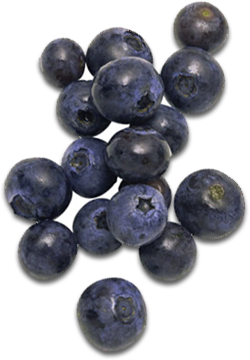no items to display
The 4 Best Types of Foods for Heart Health
Heart health is a tricky subject. We hear over and over that we should eat a heart-healthy diet. But exactly what constitutes “heart-healthy” changes with time, as new research corrects our previous notions.
Remember when we thought margarine was healthier than butter? Or that we had to limit egg consumption to two per week? Or — and this fallacy still abounds — that saturated fat causes heart disease? This American Heart Month, we cover the four best kinds of foods for heart health, as confirmed by the latest research.
1) Fruits and Vegetables
When it comes to heart health, one piece of dietary advice has not changed: Fruits and vegetables are an important part of a heart-healthy diet, period.
Heart-healthy fruits include:
· Apples, which are full of antioxidants and soluble fiber. One study found an apple a day was nearly as effective as statin drugs at lowering cholesterol and reducing the recurrence of heart attacks![1]
· Berries, which contain antioxidant polyphenols that help relax the blood vessels, thereby reducing blood pressure.[2]
· Papayas, which contains potassium and magnesium. Both of these minerals regulate blood pressure.
· Pomegranates, which are rich in antioxidants — including polyphenols — and may help reduce the buildup of plaque in the arteries.[3]
This curried apple soup looks like just the thing for a cold February night.
http://www.marthastewart.com/332420/curried-apple-soup
I’m a big fan of fruit in salad, and this one pairs pomegranate and pears with gorgonzola:
http://www.foodnetwork.com/recipes/guy-fieri/pear-and-pomegranate-salad-with-gorgonzola-and-champagne-vinaigrette-recipe.html
Heart-healthy vegetables include:
· Tomatoes, which are high in the carotenoid lycopene, recently found to positively impact multiple risk factors for heart disease.[4] Cooking tomatoes actually releases more lycopene.
· Carrots and sweet potatoes, which also contain carotenoids. A 2013 study found that low levels of carotenoids are associated with increased risk of heart attack.[5]
· Leafy greens, such as spinach, which contain heart-healthy vitamins such as vitamins A, C, and K, as well as potassium and fiber, which lowers LDL (“bad”) cholesterol.
· Cruciferous vegetables, such as broccoli, which supply fiber and antioxidants. A 2011 study found that people who eat cruciferous vegetables have a reduced risk of mortality from cardiovascular disease.[6]
Try this roasted tomato salsa at your next get-together:
http://www.marthastewart.com/919620/classic-roasted-salsa
Swap your steamed broccoli for this lemony number:
http://www.marthastewart.com/924836/lemony-braised-broccoli
2) More Foods with Antioxidants
Green tea contains antioxidants called catechins that help tame inflammation, which is at the root of many chronic conditions, including heart disease.
Dark chocolate, particularly varieties that contain at least 70 percent cocoa, has been linked to lower blood pressure. Valentine’s Day is the perfect time to whip up a dark chocolate dessert. Here are five (mostly) low-sugar ones:
http://www.health.com/health/gallery/0,,20516052,00.html
3) More Foods with Fiber
Whole grains and beans are good sources of fiber, which has been shown to lower LDL cholesterol, in addition to helping keep you regular.
Here’s a flexible grain and red bean bowl that you can make with barley, rye, or other grains: http://cooking.nytimes.com/recipes/1017291-grains-and-beans
Or you could try this whole-wheat penne with white beans and spinach (substitute gluten-free pasta if you are gluten-intolerant):
http://www.myrecipes.com/recipe/whole-wheat-pasta-with-beans
4) Foods with Healthy Fats
Is there anything you can’t get from fruits and vegetables? Well, except for avocadoes, most don’t have much fat, and the right kinds of fats are an important part of a healthy diet. Fatty fish like salmon contain heart-healthy omega-3 oils, which lower triglycerides and help check blood pressure in check. If you are a vegetarian, flax seeds, certain nuts, avocadoes, and olive oil (particularly extra virgin olive oil) are also good sources of Omega-3 oils.
This is a beautiful salmon recipe:
http://nomnompaleo.com/post/93277114563/slim-palates-pistachio-crusted-salmon
And this nut pate looks irresistible:
http://www.therawtarian.com/raw-walnut-pate
Which heart-healthy foods will you eat this month?
References:
[1] Briggs AD. A statin a day keeps the doctor away: comparative proverb assessment modelling study. BMJ. 2013; 347. http://www.bmj.com/content/347/bmj.f7267
[2] Mann, D. Strawberries, blueberries may ward off high blood pressure. WebMD.com. Jan. 21, 2011. http://www.webmd.com/hypertension-high-blood-pressure/news/20110120/strawberries-blueberries-may-ward-off-high-blood-pressure
[3] Antioxidants in pomegranate juice may fight hardening of the arteries. WebMD.com. March 21, 2005. http://www.webmd.com/food-recipes/20050321/pomegranate-juice-may-clear-clogged-arteries
[4] Daniells, S. Study unlocks lycopene’s heart health benefits. NutraIngredients-USA.com. Jan. 28, 2011. http://www.nutraingredients-usa.com/Research/Study-unlocks-lycopene-s-heart-health-benefits
[5] Karppi J, et al. Low serum lycopene and β-carotene increase risk of acute myocardial infarction in men. Eur J Public Health. 2012 Dec;22(6):835-40. http://www.ncbi.nlm.nih.gov/pubmed/22158914
[6] Zhang X, et al. Cruciferous vegetable consumption is associated with a reduced risk of total and cardiovascular disease mortality. Am J Clin Nutr. 2011 Jul;94(1):240-6. http://www.ncbi.nlm.nih.gov/pubmed/21593509






